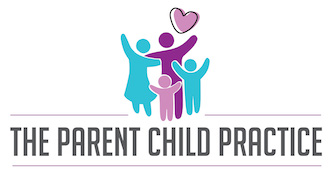Summer vacation. Mention of the word summer often erupts in ecstatic cheers from children (and some educators) around the country. This word evokes images of playing in the pool, traveling, attending interesting summer camps and having lazy days filled with sleeping late and watching television or movies. I know that personally, as a former school psychologist and graduate student, I used to eagerly await summer vacation. After an often challenging and stressful work year, I embraced the idea of having several weeks off to recuperate and re-charge. However enticing summer vacation may seem to a number of children, parents and educational professionals around the country, the truth of the matter is that for millions of our disadvantaged youth summer vacation is harmful and has negative effects on children's learning potential.
Educational research has demonstrated that a long summer break from the classroom reduces the child's gains made the previous school year. This phenomenon is known as summer slide, which is the loss of academic skills and knowledge that occurs over summer vacation. Most students experience summer slide; however, research has shown that low-income children are particularly vulnerable to this effect.
Cooper et. al (1996) completed a meta-analysis (e.g., an examination of several research studies) which included 39 studies that examined the effects of summer vacation on achievement test scores. The results of the research indicated that summer break for children equaled a regression of one month of grade-equivalent instruction. The study also showed that the summer loss was much more clear in the areas of mathematics and spelling. As a professional with knowledge of education and learning, this finding is not surprising to me because both spelling and math rely on factual knowledge (e.g., memorization skills). If a child does not practice the skills acquired from the previous school year during the summer then they are likely more susceptible to forget what they previously learned. Although the academic loss in mathematics was large, the research from Cooper et. al (1996) revealed that there was not a significant difference between middle-income and low-income children in the amount of academic loss in mathematics (i.e., both groups tend to lose about 2 months in mathematics). However, there were substantial differences between the two groups in reading. The researchers found that middle-income children often made gains in their reading achievement while low-income children lost substantial ground during the summer. I believe that this could be related to the difference in opportunities to read during the summer between the two groups; middle-income children likely have more opportunities to get access to a wealth of reading materials than their counterparts who are low-income.
So what does all of this mean? Well I would advocate for a balanced calendar so that children and staff get their academic breaks but they no longer receive two consecutive months off in the summer. I believe the traditional calendar was useful many years ago when our country relied heavily on agriculture/farming to sustain a living and children were needed as labor; however, this type of calendar is no longer needed and, as the research indicates, no longer useful. If our school systems choose to not adopt a more balanced calendar then I would recommend that more summer enrichment programs, primarily targeted towards low-income children, be made available for little to no cost. These programs could lessen the amount of time which children spend away from school and hopefully decrease the academic performance gap between low-income and middle-income children. Finally, it is important that during the summer, just as during the school year, parents limit the amount of time children spend in front of video games and television. Encourage children to take part in alternative activities such as Mad Libs, educational board games, or educational software that may inspire their imagination and help their minds grow throughout their summer vacation.
Reference
Cooper, H., Nye, B., Charlton, K., Lindsay, J., & Greathouse, S. (1996). The effects of summer vacation on achievement test scores: A narrative and meta-analytic review. Review of Educational Research, 66(3), 227-268.EJ 596 384.
Related articles
Baltimore Schools Offer Programs To Prevent Learning Loss During Summer (baltimore.cbslocal.com)
Summer Activities for Kids to Prevent Vacation Brain Drain (prettyopinionated.com)
Preventing Summer Brain Drain (fox4kc.com)



